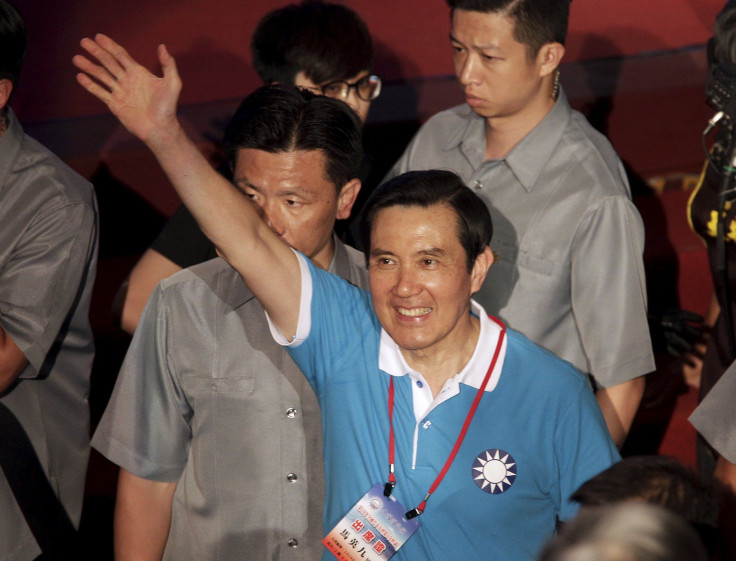Taiwan Students Storm Education Ministry Compound In Textbook Protest

TAIPEI (Reuters) - Hundreds of Taiwan students stormed the ministry of education compound early on Friday, after one committed suicide earlier in the week, intensifying anti-China protests over textbooks they say are aimed at promoting Beijing's "one China" policy.
About 700 students climbed barricades around the ministry and as of Friday morning about 200 students were encamped inside the ministry compound, demanding an audience with the island's education minister, police said.
"We have received orders not to remove the students," a police spokesman said.
Over the past several months, young activists have taken to the streets en masse, scuffling with police and forcing their way into government offices, in protest against the government's pro-Beijing stance.
The protests reflect a surge of nationalism among Taiwan's youth, who are far more likely than their elders to identify as Taiwanese rather than Chinese.
The Sunflower Movement protest seems likely to determine the outcome of January's presidential election by voting in a president from a independence-leaning party, something Communist Party rulers across the narrow Taiwan Strait will never allow.
The latest protest started in front of the education ministry compound building late Thursday in response to the suicide of a man arrested following a similar action last week.
The students say revisions to high-school textbooks present a warped version of history slanted toward China and are aimed at brainwashing them to accept a "one China" policy.
Beijing regards Taiwan as a renegade province and has not ruled out the use of force to bring the island under its control.
President Ma Ying-jeou, of the pro-China Nationalist Party, has signed a series of trade and economic pacts with China, though there have been no political talks and suspicions persist on both sides, especially in proudly democratic Taiwan.
© Copyright IBTimes 2024. All rights reserved.











